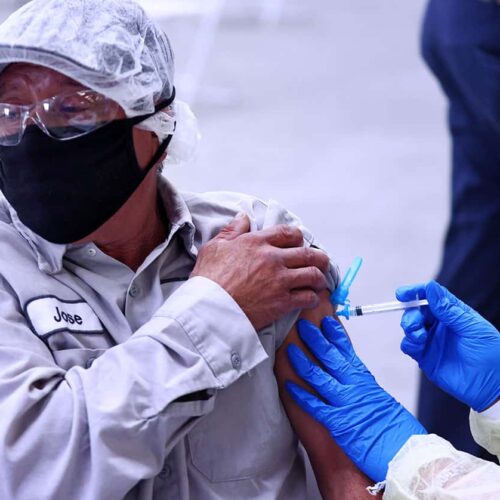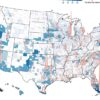Introduction
The Department of Homeland Security published a post-Trump report recently recognizing that immigrants are up to three times more likely to work in “essential” jobs with high risk of COVID-19 exposure than U.S.-born Americans. Essential workers who are not U.S. citizens are “especially vulnerable” to the virus, the report warns, because they also face multiple barriers to receiving health care.
“About 32% of noncitizens lack health insurance, compared to 7% of people born in the United States,” according to the DHS report, COVID-19 Vulnerability by Immigration Status. One in 10 U.S. residents is a noncitizen, the report points out, and 41% of noncitizens are undocumented immigrants.
To better control COVID-19, the agency says, public-health strategies must “mitigate” barriers noncitizens face, including exclusionary state policies, insurance costs and fear that seeking vaccines could lead to deportation or other family crises.
Released in May, the DHS report is dry but noticeably free of the negative rhetoric about immigrants common to Donald Trump’s presidency. In fact, the report blames a short-lived Trump policy for thwarting attempts to persuade noncitizens to seek out free vaccines.
Known as the “public charge” rule, the Trump policy disqualified immigrants applying for legal permanent residency if they had used or were judged likely to use public services, including health care. Even though the rule has been suspended, the DHS report says, “due to pervasive fear and uncertainty created by [the rule’s] introduction and implementation, noncitizens and their U.S. citizen family members are likely to continue avoiding such health care options.”
The DHS report examines barriers that vary among states and affect four groups of noncitizens: legal permanent residents; undocumented immigrants; refugees and asylees; and temporary residents such as guest workers.
Texas, for example, denies Medicaid coverage to most legal permanent resident adults who entered the United States after Aug. 22, 1996. By contrast, California in July approved allowing adults 50 and over, including the undocumented, to enroll in expanded Medicaid coverage. California Gov. Gavin Newsom noted that undocumented workers have performed many essential jobs during the pandemic. His state already includes undocumented children and youth up to 26 in its Medicaid insurance program.
In Texas, Gov. Greg Abbott last month made headlines by accusing President Joe Biden of “knowingly importing COVID-19 into Texas” by releasing some asylum-seeking migrants from federal custody there. But Abbott hasn’t criticized U.S. employers who’ve sponsored guest workers crossing from Mexico into Texas so they can perform “essential” U.S. farmwork and other food production. If guest workers enter by land, they’re not required to present a negative COVID-19 test, as air passengers entering the United States are.
Last year, many immigrants and guest workers working on U.S. farms were infected and some died, including in Texas. This year, it’s been left to states, counties and employers to try to vaccinate guest workers who’ve arrived without being inoculated first. U.S. employers are not required to provide guest workers with health insurance.
“Use this online tool to find the nearest community health center,” the Centers for Disease Control and Prevention advises employers whose guest workers need medical attention.
Susan Ferriss is a senior reporter at the Center for Public Integrity. She can be reached at sferriss@publicintegrity.org . Follow her on Twitter @susanferriss.



Join the conversation
Show Comments